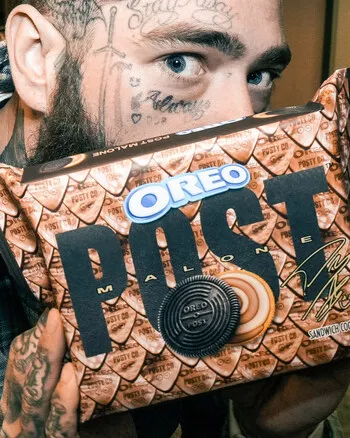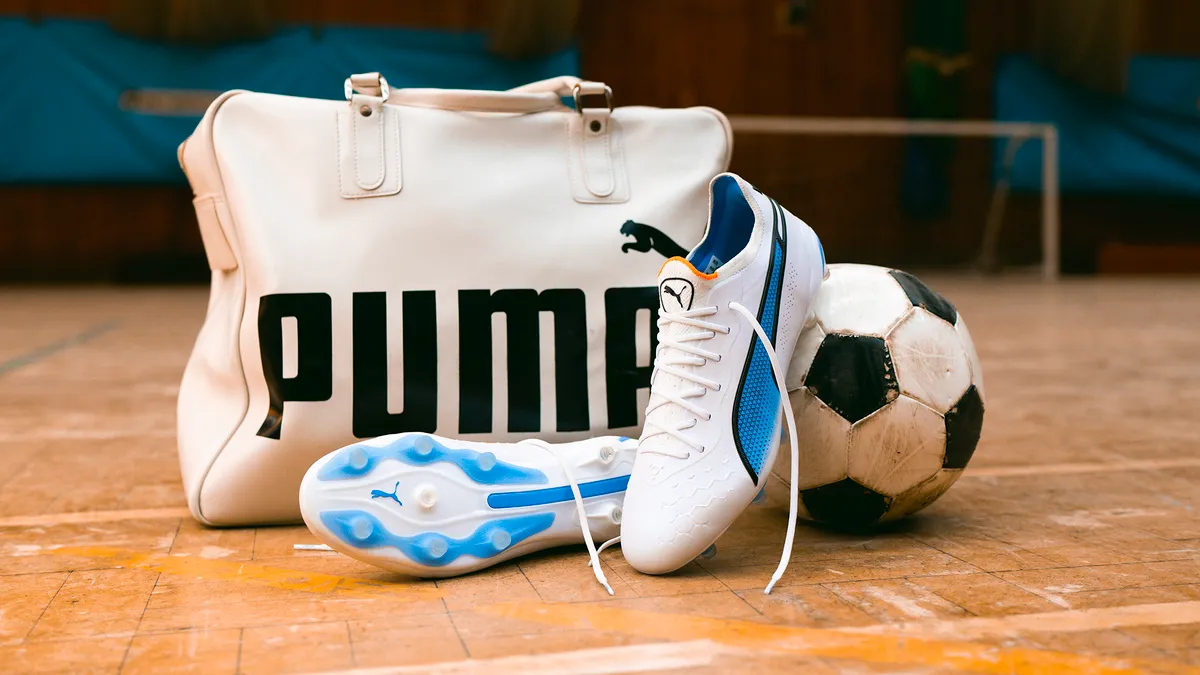It’s been another week with far more retail news than there is time in the day. Below, we break down some things you may have missed during the week and what we’re still thinking about.
From Levi Strauss’ recent board appointment to 111Skin’s latest investment, here’s our closeout for the week.
What you may have missed
Adidas could turn to job cuts in operating model overhaul
On the back of 24% sales growth in its preliminary Q4 results, Adidas is taking a new look at its operating model. The restructuring could lead to job cuts down the line, a spokesperson confirmed to Retail Dive. The retailer said it could not confirm any details or possible numbers related to layoffs, as the company is “still at the very beginning of this process” and structural changes are still being discussed. Other publications have said up to 500 jobs could be cut.
“Over the past two years we have created strong momentum for the business, our brand and our products and have proven that our approach to serve our consumers works. But we also found that, in an ever-changing world, we are too complex because of our current operating model,” the Adidas spokesperson said. “To set adidas up for long-term success we are now starting to look at how we align our operating model with the reality of how we work. This may have an impact on the organizational structure and number of roles based at our HQ in Herzogenaurach.”
The spokesperson also clarified that it was not a cost-cutting program, but an effort to reduce complexity across the organization, and said any decisions impacting employees would be “handled with the utmost respect and care.”
J.C. Penney goes big on petite
J.C. Penney on Thursday announced the Bold Elements x Ally Brooke collection, a limited-time collection for the private label that focuses on petite fashion.
Designed in partnership with singer-songwriter Brooke, the collection includes 29 pieces, starting at $30, available in petite, standard and plus-sizing, according to a company announcement.

“Inclusivity has always been a top priority for J.C. Penney, and we’re excited to deliver on that promise with this new collection, specifically tailored to petite women – who are often left out of fashion spaces and conversations,” Marisa Thalberg, Catalyst Brands’ chief customer and marketing officer, said in a statement.
111Skin lands investment from Kim Kardashian’s private equity firm
Skin care brand 111Skin has received a minority investment from SKKY Partners, the private equity firm founded by Jay Sammons and Kim Kardashian. 111Skin’s co-founders, Eva Alexandrides and Yannis Alexandrides, will maintain majority ownership and continue to lead the company alongside CEO Vanessa Goddevrind.
The investment, which was not disclosed, will help the beauty brand expand its DTC business and grow its presence in markets like North America and Asia, per a company announcement.
“The SKKY Partners team has tremendous experience working with distinctive, growth-oriented brands,” Goddevrind said in a statement. “They are passionate champions of our core values and share our drive for excellence.”
Levi Strauss appoints Sephora North America CEO to board
Levi Strauss & Co. this week named Artemis Patrick, the CEO of Sephora’s North America business, to its board of directors, effective Feb. 1. As of the beginning of March, she will also serve as a member of its audit and nominating, governance and corporate citizenship committees, per a company press release.
“Artemis has a proven track record as a multifaceted leader, with roots in merchandising, brand building, partnerships and e-commerce,” Levi’s Chairman Bob Eckert said in a statement. “Her deep industry and leadership expertise will be a valuable addition to our board as we continue to strengthen LS&Co.’s position in the retail and apparel industries while also furthering the company’s pivot to becoming a best-in-class omnichannel retailer.”
Patrick said in her own statement that she has been a fan of the denim retailer since she was a teenager, noting that she grew up in the retailer’s headquarters of San Francisco. “I look forward to working alongside this amazing team as it becomes a world-class retailer known for both its fashion and consumer experience while driving sustainable, profitable growth for the long term,” Patrick said.
Retail therapy
Get more cookies, these cookies are lonely

Oreo, which is known for its interesting, limited-time flavors and once even partnered with Supreme, decided to start the year with a very unlikely collab with the sometimes hip-hop, sometimes country, sometimes pop star, Post Malone. The result is a “first-of-its-kind” swirled creme that combines salted caramel and shortbread flavors sandwiched between one traditional Oreo cookie and a golden cookie, according to a company press release. Each cookie also has one of nine embossments inspired by the Grammy-nominated musician.
"It's the first time Oreo has ever twisted the creme of the cookie and they named it after me,” Posty, who is also known for his partnership with Crocs, said in a statement.
The limited-edition packs will be available for presale on Monday and in stores nationwide Feb. 3.
The latest skin care trend: a can of beer
To help “chill your case of the Mondays” for football fans, beer company Coors Light unveiled its Chill Face Roller designed for the day after the Superbowl. Combining the beauty trend of face rolling and a 12-ounce can of Coors Light, a can is inserted into the tool’s holster to form a facial tool.
The skin care tool will begin selling on Monday on the Coors Light website. Coors Light is also releasing limited-edition Case of the Mondays shirts, matching sweat sets, hats and other merch.
What we're still thinking about
1
That’s the number of initial stores Books Inc. plans to close after filing for Chapter 11 bankruptcy.
The company said pandemic-related revenue losses and consumer buying habit changes contributed to its financial situation. The California-based company also said in court documents that the number of stores it closes could grow if it’s unable to adjust its lease terms to match current foot traffic and sales levels. Its Berkeley store is slated to close Feb. 9.
Books Inc. has operated for nearly 175 years. It had an e-commerce operation and 11 physical stores in and around San Francisco when it sought bankruptcy protection. The privately held company claimed liabilities and assets ranging from $1 million to $10 million and its top 10 creditors, which included the California Department of Tax and Fee Administration, are collectively owed nearly $3 million, according to court records.
15.5%
That’s how much Puma’s net sales grew in Q4, according to preliminary results released Wednesday. For the full year, Puma recorded 2.5% sales growth in 2024, reaching 8.8 billion euros (about $9.3 billion at press time). Net income for both the fourth quarter and the fiscal year came in below expectations, due to higher net interest expenses and higher noncontrolling interests.
As a result of the company’s performance on profitability, which CEO Arne Freundt said the company was “not satisfied with,” Puma will be rolling out a “comprehensive efficiency program” aimed at improving operations and cutting costs. The retailer hopes the initiative will lead to an EBIT margin of 8.5% by 2027 through measures including allocating resources to strategic growth areas and optimizing expenses including employee costs.
A company spokesperson said the brand aims to keep its headcount stable throughout the process and that there is no target for redundancies. Rather, the program is aimed at using its resources toward growth-driving functions and investing in marketing and infrastructure.
“Combined with decisive actions already taken, we will implement further cost control measures in 2025,” Freundt said in a statement. “While we continue to operate in a dynamic environment, we are encouraged by our improved growth throughout 2024 and expect 2025 to grow stronger than 2024.”
What we're watching
Retail store closings likely to exceed openings again in 2025
Inflation and consumers’ pursuit of the best and cheapest deals drove high store closings last year and the trend is poised to continue, an analysis found. About 15,000 U.S. stores are expected to close in 2025, outpacing an anticipated 5,800 openings, according to a report published this week by Coresight Research. Last year, retailers opened 5,970 stores but closed 7,325 locations as of Jan. 10.
Coresight CEO Deborah Weinswig said last year’s figures are the highest since the pandemic, according to the company’s data. The closures fall into three main categories: legacy retailers that are adjusting their footprints in response to market forces, distressed retailers implementing large-scale closures and companies that are liquidating and closing all locations.
Consumers are becoming more discerning and less patient with poor execution, like disorganized stores, out-of-stock merchandise and bad customer service, according to Weinswig. “Retailers need to embrace technologies like artificial intelligence to deliver a better customer experience and to optimize pricing to remain relevant and avoid ongoing closures,” Weinswig said.























